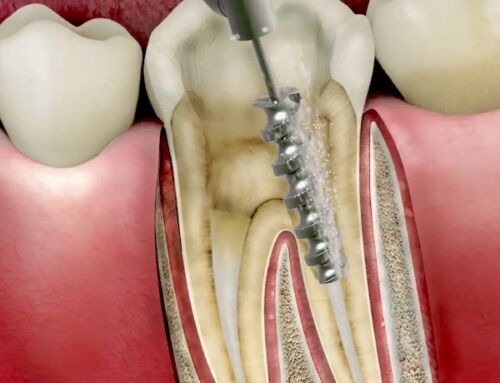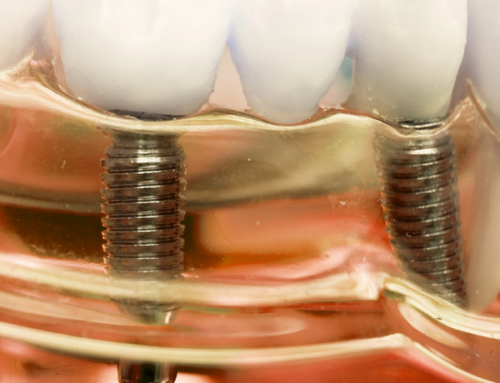If you have a badly decayed tooth or a dental infection, your dentist or endodontist may have recommended that you get a root canal treatment.
A root canal procedure involves the removal of an infected or inflamed pulp. The pulp is the soft tissue on the innermost layer of the tooth that supplies nutrients, blood, and innervation to the tooth. With an infected pulp, problems such as severe pain, sensitivity, pus formation, and damage to other teeth may occur. So, getting treatment done as soon as possible is important to prevent further complications.
Learn more about the root canal procedure with this read and how it can save your tooth and smile.
When is a root canal needed?
There are many reasons why your dentist may recommend getting an endodontic treatment.
Inflammation or infection of the tooth pulp may occur due to:
- Deep tooth decay reaching the tooth pulp
- Broken tooth
- Cracked tooth
- Dental abscess
- Tooth trauma
What are the signs that you need a root canal?
Some symptoms that you might need a root canal are:
- Severe pain
- Pimple on the gums
- Large chip or crack on the tooth
- Lingering tooth sensitivity even without triggers from hot or cold food or drinks
- Swollen or tender gums
- Discoloured tooth
- Darkened gums
Not all symptoms will show for every case. It will still depend on the severity of the infection. If you find yourself with any of the listed signs of a possible root canal, contact your dentist immediately for early diagnosis and treatment.
Preparing for a Root Canal
Getting a root canal done may sound intimidating, especially with several horror stories of pain during the procedure. However, contrary to popular belief, a root canal procedure is not at all scary!
With the right preparation and guidance from your dentist, your treatment experience should be seamless and comfortable. Here are a few tips on how to prepare for a root canal:
- Avoid alcohol and tobacco 24 hours before
Injecting local anaesthesia is part of the treatment to numb the area and improve your overall experience. Alcohol and tobacco may have negative effects on the anaesthesia, so try to avoid this before your appointment.
- Take the prescribed medications
Painkillers, sedatives, and antibiotics are some medications that may be prescribed before getting a root canal. Make sure to take this as instructed by your dentist.
- Eat and hydrate before the procedure
Your comfort makes all the difference during treatment, this includes eating and drinking water before getting your root canal done.
- Talk to your dentist
If you have questions or concerns about the treatment, do not be shy to ask your dentist about it! This lessens your anxiety and improves your confidence in the procedure.
- Rest!
Lastly, a full night’s sleep before and after the treatment helps your body to be in optimal shape for a long procedure. It also aids in good recovery after you finish the procedure!
Root Canal Procedure Steps
The usual steps of a root canal treatment involve:
- First, administering anaesthesia is done to numb the infected tooth. Your dentist may also provide you with sedation drugs to help you relax during treatment.
- Isolating the tooth using a rubber dam prevents bacteria from saliva from going into the tooth. This will improve your recovery time and reduce post-treatment complications.
- Then, your dentist will proceed with accessing the pulp canals by drilling a tiny hole into the tooth. All canals must be reached to ensure that the tooth is bacteria-free.
- Using tiny endo files, your dentist will do the cleaning and shaping of the canals. They will remove infected pulp and other soft tissues. An irrigating solution also helps eliminate bacteria that may cause reinfection.
- After cleaning, completely sealing the canals using biocompatible material will prevent bacteria from going back into the tooth and causing treatment failure.
- Then, filling the tooth with temporary material will cover the hole on the tooth crown. This will reinforce the strength of the tooth and help it function until your dentist can place a stronger material.
- Lastly, placing a final restoration, usually a dental crown will restore the tooth to full function and a natural appearance. This is crucial in a root canal procedure because a root-canal treated tooth is already brittle. So, a more durable final restoration such as a crown will help it last many years.
What Happens After Getting a Root Canal
Recovery after root canal treatment is different for everyone. For the first few days after a root canal procedure, some patients may experience sensitivity or gum inflammation. This is especially true if you have a previously large dental infection.
Regardless of the symptoms, a follow-up appointment is always recommended. This will help your dentist monitor your progress, track any problems, and resolve the issues as soon as possible.
Importance of Timely Dental Care
Tooth decay is one of the most common reasons why you may need a root canal treatment. But, it is never the only solution for it. This is where early and preventive dental care comes into play.
Early tooth decay that involves just the outer layers of the tooth can still be repaired with dental fillings. But, if decay is left untreated, it will rapidly progress to involve other tooth layers. Once the pulp is affected, a root canal is already needed. If oral health is further neglected, a root canal may not suffice and your dentist may recommend extracting the tooth.
Just like with tooth decay, early diagnosis of all dental concerns can be treated with minimally invasive and less expensive treatments. It saves you from possibly losing your tooth.
So, as soon as you any signs of a problem, schedule a visit with your dentist so they can take a closer look.
Chinook Dental Group: An Endodontic Specialty Dental Clinic
Chinook Dental Group is a proud, multi-specialty dental clinic in Calgary and one of our premier specializations is endodontic treatment. With unparalleled standards and experience in endodontic care, advanced treatment procedures, and modern dental facilities, we provide our patients with a chance to save their teeth and improve their oral health.
Book an appointment today for a root canal consultation to learn more about what we can do to help you smile better!






